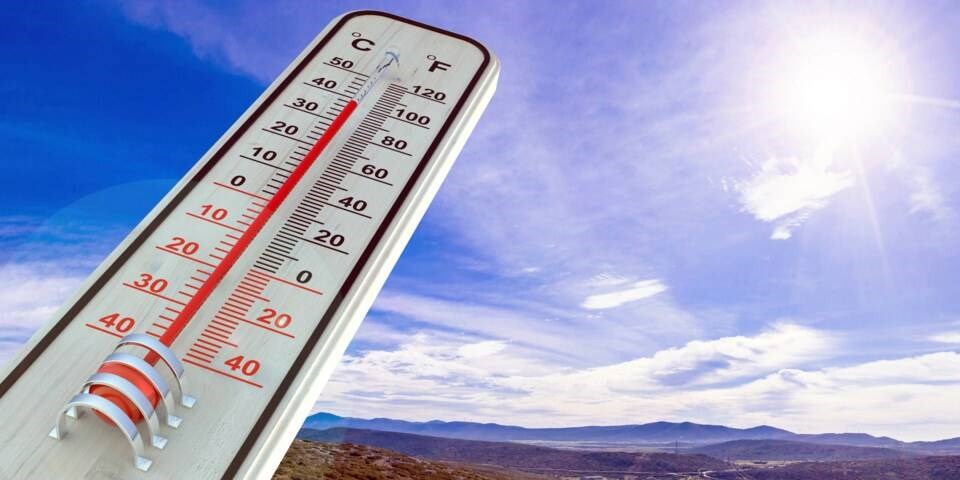Should all multi-unit buildings be required to have a heat plan in place to ensure the safety of residents during extreme heat? That’s something the City of New Westminster may explore as part of its efforts to keep folks safe in extreme heat.
At its April 24 meeting, council received an update on its 2023 heat response. New Westminster was one of the deadliest cities in B.C. during the heat dome of 2021.
In an update to council, the city’s emergency management office (EMO) said its work has focused on updating the city’s existing plans in preparation for the potential of an extreme heat response, with an emphasis on preventative messaging and collaboration within the community. An air conditioner loan pilot program, an outdoor cooling strategy, and outreach (including direct contact with property managers) are among the city’s plans.
“The EMO will continue to monitor the forecasted weather and focus our efforts in finalizing our heat response updates for the summer season with internal city departments and outside agencies,” said a staff report to council. “The EMO will also continue to mobilize and provide outreach to vulnerable populations, residents, faith based and non-profit organizations and provide information on ways the community can become more resilient during an emergency.”
According to the report, the city will be installing an informational phone messaging system for these types of events using the new Twillio system. It said this system has been in use by the city’s electrical utility during localized power outages and has proven to be an effective community messaging platform.
During Emergency Preparedness Week, which runs from May 7 to 13, the Emergency Management Office will be encouraging New West residents to reach out to their neighbours and friends to create an internal social network that can better support one another in an emergency or even in day-to-day life. Two pop-up “get prepared” events will be held in New West: Friday, May 5: Queensborough Community Centre – 2:30 to 4 p.m.; and Tuesday, May 9: Royal City Centre – 9 a.m. to noon.
Coun. Jaimie McEvoy said he’d like the city to be able to provide residents with information about steps they can take in extreme heat events prior to soaring temperatures.
“I am really glad to see that we’ve taken some fairly significant steps, and also with Fraser Health, to try to be prepared for the next heat event. I honestly think we’re going to need to do even more,” he said. “But this is really lifesaving work. And so I’m thankful to the fire department for playing the lead on this.”
Brad Davie, assistant deputy Chief with New Westminster Fire and Rescue Services, said messages about extreme heat will be sent out to the general public, as well as targeted messages to people in high-risk buildings, in advance of extreme heat.
In regards to the air conditioner loan program, Davie told council staff are working with the health authority to identify high-risk buildings that have the appropriate infrastructure to be part of that initiative.
Through an outdoor cooling strategy, the city will provide information about places where residents can cool off, including indoor cooling centres, water stations, outdoor pools, misting stations, spray parks, and parks and natural areas having mature trees/ forested areas that create cool shade. A new “outdoor cooling map” will show where the city will install up to 15 temporary misting stations by June 30.
Coun. Tasha Henderson noted that the 2021 heat dome occurred in the last week of June, so she’d like the misting stations to be set up prior to June 30 if possible.
Davie said the city’s plan includes setting up spray parks and misters if the forecast indicates the temperature is going to hit 29 degrees is in Vancouver.
“We would actually initiate that a little bit quicker here in New West because we are in a heat island, and we do see that the temperatures climb higher in New West,” he said. “So we actually implement those a little bit earlier than what we do see Environment Canada request. The misters, if they are required, we will have them well in advance.”
More to be done?
Mayor Patrick Johnstone said Fraser Health officials have told him they’re pleased how collaborative and proactive New Westminster is being in its efforts to respond to extreme heat.
While he supports the initiatives being taken by the city, Johnstone wonders if the city needs to explore regulatory changes that may allow the city to be even more proactive in the event of a heat dome.
“We had 28 people die in New Westminster during that (2021) catastrophic event,” he said.
Johnstone said multi-unit residential buildings are required to have fire response plans, fire alarms and sprinklers, and the city has staff who verify those life-saving measures are in place and can respond to those types of emergencies.
“We have penalties if they don’t comply with fire plans, and this is what saves lives,” he said. “The heat dome demonstrated to us that heat events are a real risk to the lives of residents. So I would like to see staff explore our ability to regulate a heat response plan requirement for all MERBs in the city – for all multi-unit residential buildings.”
Johnstone said he’s unsure if the city has the “tools in our own toolbox” right now to do that, or if it would require advocacy to senior governments to require every multi-unit building in the city to have a heat plan.
Council directed staff to look into what would be required to ensure that all mulita-unit buildings have a heat plan in place.



.jpg;w=120;h=80;mode=crop)

